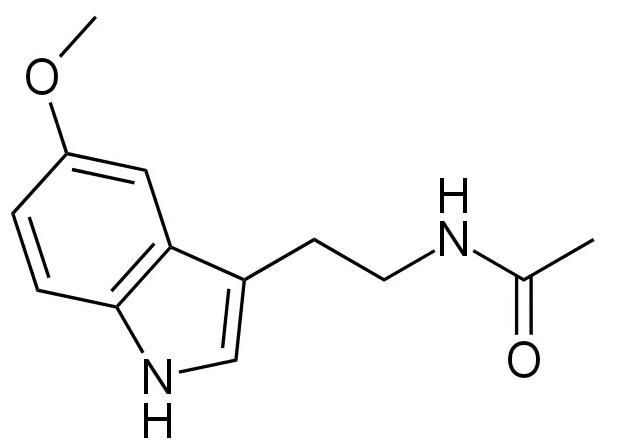Melatonin, also known as pineal hormone or N-acetyl-5-methoxytryptamine, is an essential indoleamine molecule in living organisms. It has been found in animals, plants, fungi, and bacteria. However, research has shown that the function of melatonin varies in different organisms.

In plants, melatonin plays a role in resisting oxidative stress, promoting seed germination, regulating carbon-nitrogen metabolism, fruit development, and improving fruit quality and yield.
In animals, melatonin is a hormone that regulates the biological clock, including sleep-wake timing, blood pressure regulation, and seasonal reproduction. The pineal gland, a rice-grain-sized gland located in the center of the human brain and at the junction of the two brain hemispheres, is responsible for producing melatonin. From dusk, the pineal gland starts producing melatonin, which increases during the night, making us feel sleepy and more easily fall asleep. By the next morning, melatonin levels drop to their lowest. For people who work night shifts or need to adjust their circadian rhythm, melatonin has been shown to be effective, acting as a natural “sleep aid.” However, studies have found that this sleep aid is not universal and has little effect on people who suffer from insomnia due to anxiety or other reasons.
